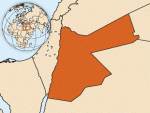This pilot project project aims to increase adaptive capacity to respond to health risks resulting from water scarcity induced by climate change by establishing early warning systems, a health risk prevention system, as well as a comprehensive monitoring and surveillance systems for wastewater reuse.
 28 March 2011: The World Health Organization (WHO) and the UN Development Programme (UNDP) have launched a pilot project to increase adaptive capacity to respond to health risks resulting from water scarcity induced by climate change in Jordan.
28 March 2011: The World Health Organization (WHO) and the UN Development Programme (UNDP) have launched a pilot project to increase adaptive capacity to respond to health risks resulting from water scarcity induced by climate change in Jordan.
Climate change is expected to increase temperatures and change precipitation patterns, decreasing surface water availability and, acting on top of other stresses, increase water scarcity in the country. Under the initiative, representatives from the Government, UN and other experts are to establish a health risk prevention system as well as comprehensive monitoring and surveillance systems for treated wastewater reuse.
The project will be led by the Ministry of Health, and implemented in close co-operation and coordination with the Ministry of Water and Irrigation (MWI) and Ministry of Environment (MoE). The project in Jordan is part of a global initiative on piloting health adaptation to climate change, operating in seven countries (Barbados, Fiji, Uzbekistan, Bhutan, Kenya, China and Jordan), and is funded by the Global Environmental Facility (GEF). [WHO Jordan Project Website][WHO Work on Climate Change and Health in the Eastern Mediterranean]